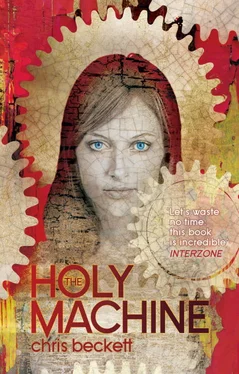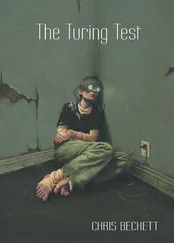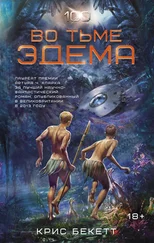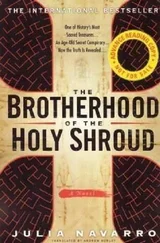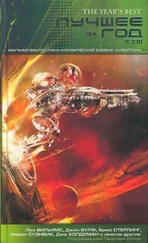Chris Beckett
THE HOLY MACHINE
For my parents.
Two creative people, full of curiosity about life.
You are both very dear to me.
Perhaps I should start this story with my escape across the border in the company of a beautiful woman? Or I could begin with the image of myself picking up pieces of human flesh in a small room in a Greek taverna, retching and gagging as I wrapped them in a shirt and stuffed it into my suitcase. (That was a turning point. There’s no doubt about that.) Or, then again, it might be better to begin with something more spectacular, more panoramic: the Machine itself perhaps, the robot Messiah, preaching in Tirana to the faithful, tens of thousands of them clutching at its every word?
But I think I will begin with a summer night when I was twenty-two years old. (Here I am, look, at twenty-two, fumbling for my key on the landing outside our Illyria City apartment, my briefcase tucked awkwardly under my arm… ) I didn’t know it at the time but it was on this night that my strange journey began.
I had been working late in my office at a company called Word for Word. I was a translator and my job was to assist with the language side of the various trade transactions that took place between our strange Balkan city-state and the hostile but impoverished territories that surrounded us. (Seven different languages were by then spoken within a radius of two hundred kilometres – and at least that many religions were fervently practised, each of them claiming to be the final and literal truth about everything.) There were some rewards involved in working as long hours as I did but the real reason was that I had nothing else to do, and even the office late at night felt more like home than the bleak apartment that I shared with Ruth.
Ruth was my mother. I always called her Ruth. She never liked the idea of being mum. I was conceived quite accidentally in a boat full of frightened refugees crossing Lake Michigan. My parents were complete strangers to one another, but just that once they clung together for comfort. I believe it was the only sexual encounter of Ruth’s adult life.
‘Ruth?’ I called as I opened the door.
But as usual she didn’t answer because she was suspended in her SenSpace suit, jerking back and forth like a puppet as she wandered in the electronic dreamworld. It was something she seemed to do now almost all the time except when she was sleeping or at work She was getting very thin, I observed coldly as I glanced into the SenSpace room and saw her threshing around in that lattice of wires. SenSpace food might look and even taste good – they had recently found ways of projecting olfactory sensations – but it could never fill you up.
I ordered my own meal and a beer from the domestic, an old X3 called Charlie, which we’d owned since my childhood. He trundled patiently off to the kitchen on his rubber tyres. (Getting him repaired was increasingly difficult, but we hung onto him anyway. He was one of the family, perhaps even its best-loved member.) While the meal was heating up, I wandered out onto the balcony with the beer. We were fifty floors up and it was a fine view. You could see the sea in one direction and glimpse the bare mountains of Zagoria in the other. But all around us were towers of steel and glass. Our Illyria was a city of towers, built by the best engineers and scientists on the planet as a homeland for themselves, and a refuge from the religious extremists of the Reaction, from which Ruth and her generation had fled.
I was very lonely in those days. I spoke eight languages fluently, but I had no one to talk to and nothing to say. I didn’t know how to be a part of the world. And as for Ruth, she didn’t even want to be. We were both of us creatures of fear. High up there in the steel canyons of our city, I would even try to derive some sense of comfort and company from the little lights of other apartments across the void, and try to persuade myself that the flashing signs in the commercial sector were speaking personally to me.
DRINK COCA-COLA!
RELY ON MICROSOFT!
WATCH OUT FOR CHANNEL NINE!
Then Charlie called me in for my meal and I sat in front of the TV and flipped on the news. In Central Asia, new religious wars were in the air and crowds were streaming round and round that hideous statue that bleeds real blood donated by the faithful, chanting ‘death! death! death!’ In Holy America, where Ruth grew up, new laws had restricted the franchise to ‘God-fearing male heads of Christian families’ and introduced the death penalty for promulgating the sinful doctrine of Evolution.
I flipped channels. Our TV held all programmes broadcast in the last twenty-four hours on its hard disc, so you could flip backwards and forwards as well as sideways. I hopped to and fro: random moments from a movie, a documentary about discontinuous motion, a sitcom…
Then I came to Channel Nine and was suddenly captivated by the image of an amazingly pretty woman, with lovely gentle eyes.
I didn’t know it then of course, but it was Lucy.
It was actually a programme about syntecs , robots that were coated with a layer of living flesh. They were virtually identical to people, except in the one important respect that, unlike the foreign ‘guestworkers’ who were the working class of our city, but like all other robots, they could be programmed. They did not have a personal or a cultural history. They did not have the virus of irrationality and superstition which seemed to have infected ordinary uneducated folk throughout the world.
The government’s long-term intention was to use robots to replace the guestworkers altogether, removing from our midst a dangerous fifth column for the Reaction. Thousands of human workers – Greeks, Turks, Arabs, Albanians, Russians, Indians, Filipinos – had already been sent away. Of course most of the robots who took over their jobs were fitted with plastic skins at best, and many bore no serious resemblance to human beings. But syntecs had been specifically developed to provide those services that were thought to require a ‘human’ touch. Wealthy people acquired syntec domestic servants, for example, and some prestigious offices acquired beautiful syntec receptionists. They were a luxury item.
Inevitably there were also syntec sex workers. (Communication satellites, computers, the printing press: human beings always find a sexual angle.) Lucy was a syntec prostitute, though they were known officially as Advanced Sensual Pleasure Units, or ASPUs for short. The TV programme explained that ASPUs were entirely beneficial to society. They harmed no one, they could not themselves experience suffering and there was no empirical evidence to support the contention that their existence might encourage crimes against women. Quite the contrary was true, apparently. They had reduced the incidence of rape and they also helped prevent the spread of venereal diseases. Only superstitious notions of right and wrong could prevent anyone from seeing they were a thoroughly good and rational thing.
But never mind all that. The image of Lucy had touched me. It had touched a raw place inside me and I was suddenly disturbingly aroused by the idea that she not only existed but was readily and easily available. I could hold her in my arms tomorrow… And there could be no rejection, no complications, no one to disappoint…
I flipped back to see her again, curled up in her lacy negligee on the corner of a sofa. She might not really be alive, but the semblance of life was perfect. So was the sweetness and the softness and the grace.
Make allowances, if you can, for the fact that at that time I had never been held by another human being. As a child my main companion was Charlie, our X3, with his rubber tyres and his vocabulary of fifty sentences. I used to have him ‘sleep’ by my bed.
Читать дальше
